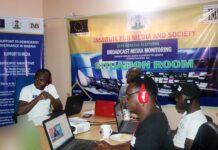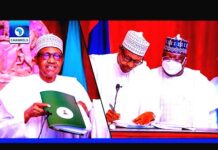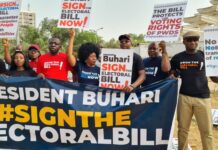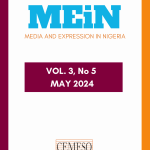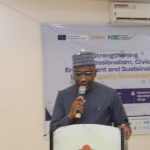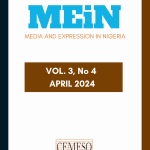Stakeholders have called for a deepening of media practice to meet global standards.
Programmes Director, Media Rights Agenda (MRA), Ayoade Longe, told The Guardian that deepened legislation would guide “us as a people because even the Bible says where there is no law there is no sin.”
While saying that the country has more than enough laws that regulate the media and expression, “we do not need new laws.”
He said, “We still have laws that criminalize expression, including criminal defamation, whereas the world is moving away from criminalizing expression. So, really, Nigeria does not need any new law to regulate the media. The laws we have that regulate media practice in Nigeria actually need to be reviewed to move away from their dictatorial nature to meet international best practices where expression offenses are handled as civil matters.”
He said the government could create an enabling environment for media to thrive in various ways. The media, he advised, should be given waivers and reduced taxes for the importation of media consumables; the government should look into the incessant attacks on the media and bring perpetrators to book, thereby, sending the signal to would be perpetrators that they will not go free if they attack journalists and media workers.
“Following the COVID-19 pandemic that ravaged the world, in addition to the tax incentive, the government can also give soft loans with low interest and flexible payment schedule to see that media organizations don’t collapse in the aftermath of the pandemic.”
He said the media, currently, face so many challenges as sales of media products, especially, printed media have dropped drastically due to the development in technology and the Internet, which have put various tools in people’s hands such that they often get the news as they are happening. There is also a drop in advert revenues which sustain the media with some corporations and even the government using it as a carrot and a stick to get the media to do its bidding.
Longe said the media need to innovate because the rate of development all over the world requires innovation to be successful. “Today, a newspaper journalist should be able to combine a trained voice and camera expertise to his/her arsenal to stand out. There should be a paradigm shift from the traditional ways of reporting to the new digital method. In other words, media organizations and individual journalists should up-skill and upgrade themselves for the digital media demand. That way, the media practice can be robust.”
Also speaking recently at the Inaugural Virtual Edition of the Jacksonites Professional Development Series Seminar, which was held on July 30, 2021, Associate Professor and Graduate Programme Coordinator at the Institute of African Studies, Carleton University, Dr. Nduka Otiono, noted that the Nigeria media cannot be captured.
While delivering a keynote address themed, “A Captured Media in an Insecure Nation: Democracy, Hate Speech and Free Speech on Trial?” he noted that the Nigeria media remains one of the most vigorous in the world and a very resilient one at that because they operate in a guerrilla fashion.
He said that though dictators, as witnessed during protests, have suppressed media, this has not taken away the desire to meet the world standard.
To him, the continued responses and resistance from the media points to the fact that it cannot be captured.
Otiono said that fake news and hate speech has been widely aided by social media where at the touch of the button ‘one can disseminate any information you wish to send to millions of people with access to the internet just about the same time, the right to freedom of expression as guaranteed and protected in Section 39 of the 1999 Constitution of Nigeria, which is also enshrined in article 19 of Universal Declaration on Human Right and Article 9 of the Africa Chapter on Human and People’s right is an indication that freedom of expression is a necessity. He said that the right to freedom of expression is a right and not a privilege.
According to him, the “media appears captured in an insecure nation where Boko Haram terrorists and herders preside with impunity. Fake news and hate speech have become the unholy binary force that underpins social-political communication.”
Reacting to the address, Mallam Garba Shehu, Senior Special Assistant to the President on Media and Publicity corroborated Otiono’s assertion that the Nigerian media cannot be captured.
“You cannot kill the press; you cannot chain it. The press is vibrant and aggressive and it will continue to be so,” Garba said.
Speaking at the public hearing organized by the House of Representatives Committee on Information, National Orientation, Ethics and Values in Abuja recently, stakeholders raised the need for a media that is inclusive and embraces marginalized groups such as women, persons living with Disabilities (PWDs) and youths.
A way to deepen the practice includes having neutral persons appointed into regulatory bodies such as the National Broadcasting Commission (NBC).
Executive Director, Institute for Media and Society (IMS), Dr. Akin Akingbulu, argued that membership of the Board of Trustees should include representatives of industry groups such as Broadcasting Organisation of Nigeria (BON), Nigeria Union of Journalist (NUJ), Radio, Television, Theatre and Arts Workers Union of Nigeria (RATTAWU) and others.
In the appointment of the Director-General, he suggested that Section 5 should be amended to provide that: the DG shall be appointed by the President upon consultation with broadcasting industry stakeholder groups and confirmation by the National Assembly.
Akingbulu observed that the inclusion of the following among categories of broadcasting services licenses would be injurious to the civic space, freedom of expression and media freedom in Nigeria: IPTV, IP Radio, EPG, Online News Related Services, Internet Broadcasting (webcast), Over-the-Top Television (OTT), and any other class of licenses as may be determined by the Commission.




